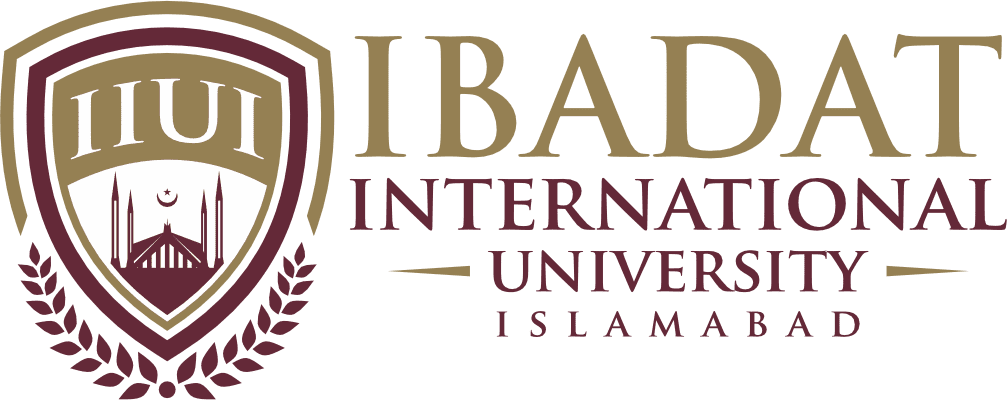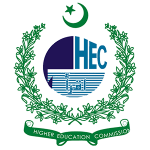FACULTY OF ALLIED HEALTH & BIOLOGICAL SCIENCES
Bachelor of Science in CARDIAC PERFUSION TECHNOLOGY
Department
Health Professional Technologies
Level
Undergraduate
Semesters
08
Credit
138
INTRODUCTION
The Bachelor of Science in Cardiac Perfusion Technology (BSCPT) program aims to equip students with the professional knowledge, technical skills, and ethical values needed to support cardiac surgical care. Graduates are trained to manage cardiopulmonary bypass and extracorporeal support systems, monitor patient parameters, and contribute to blood management. They work closely with healthcare teams, engage in evidence-based practice and research, and stay updated with evolving technologies to ensure high-quality patient outcomes.
- Program Duration
- Entry Requirements
Program Duration: 4 Year
Timing: Morning (Monday-Friday)
Location: 6.7 Km Japan Road, Sihala, Islamabad.
Recognized By: Higher Education Commission
Entry Requirements:
- FSc. (Pre-medical) with minimum 50% marks.
- A Levels with IBCC Equivalency Certificate
- 2 years Diploma in relevant field with IBCC Equivalency Certificate
Entry Test: Ibadat International University Entry Test (if).
Course Code | SEMESTER-I | Credit Hours | PRE-REQUISITE |
BCP-6201 | Anatomy | 3(2+1) | NA |
BCP-6205 | Physiology-I | 3(2+1) | NA |
BCP-6111 | Computer Education | 3(2+1) | NA |
BCP-6113 | Biochemistry | 3(2+1) | NA |
BCP-6101 | Functional English | 3(3+0) | NA |
BCP-6105 | Islamic studies/Ethics | 2(2+0) | NA |
BCP-6106 | Seerat-un-Nabi ﷺ | 0(Non-Credit) | NA |
Total Credit Hours =17 | |||
Course Code | SEMESTER-II | Credit Hours |
|
BCP-6102 | Communication Skills | 2(2+0) | NA |
BCP-6115 | Behavioral Sciences | 3(3+0) | NA |
BCP-6107 | Pakistan Studies | 2(2+0) | NA |
BCP-6117 | Biostatistics | 3(3+0) | NA |
BCP-6206 | Physiology-II | 3(2+1) | NA |
BCP-6401 | Instrumentation in Perfusion Technology | 3(2+1) | NA |
BCP-6607 | Epidemiology and Public Health | 2(2+0) | NA |
Total Credit Hours =18 | |||
Course Code | SEMESTER-III | Credit Hours |
|
BCP-6103 | Technical Writing and Presentation Skills | 3(3+0) | NA |
BCP-6203 | Pathology | 3(3+0) | NA |
BCP-6402 | Basic And Advance Cardiac Life Support | 3(2+1) | NA |
BCP-6502 | Fundamentals of Infection Control | 3(3+0) | NA |
BCP-6508 | Biosafety, Patient and Equipment Safety | 2(2+0) | NA |
BCP-6602 | Pharmacology | 3(3+0) | NA |
Total Credit Hours =17 | |||
Course Code | SEMESTER-IV | Credit Hours |
|
BCP-6114 | Ideology & Constitution of Pakistan | 2(2+0) | NA |
BCP-6108 | Community Medicine | 3(3+0) | NA |
BCP-6116 | Research Methodology | 3(3+0) | NA |
BCP-6112 | Entrepreneurship | 2(2+0) | NA |
BCP-6403 | Principle and Ethics of Perfusion Technology | 2(2+0) | NA |
BCP-6406 | Pathophysiology of Heart Diseases | 3(3+0) | NA |
BCP-6603 | Medical Ethics | 2(2+0) | NA |
Total Credit Hours = 17 | |||
Course Code | SEMESTER-V | Credit Hours |
|
BCP-6204 | Medical Physics | 3(3+0) | NA |
BCP-6303 | Application of Cardiovascular Diagnostic and Monitoring | 3(2+1) | NA |
BCP-6407 | Pathophysiology of Pulmonary Diseases | 3(3+0) | NA |
BCP-6518 | Perioperative Management | 3(2+1) | NA |
BCP-6601 | Microbiology | 3(2+1) | NA |
BCP-6606 | Hematology | 3(2+1) | NA |
Total Credit Hours = 18 | |||
Course Code | SEMESTER-VI | Credit Hours |
|
BCP-6301 | Echocardiography | 3(2+1) | NA |
BCP-6307 | Electrophysiology | 3(2+1) | NA |
BCP-6408 | Pediatric and Adult Cardiology | 3(3+0) | NA |
BCP-6505 | Perfusion Technology-I | 3(2+1) | NA |
BCP-6514 | Adult Cardiovascular Surgical Procedures | 3(2+1) | NA |
BCP-6515 | Mechanical Life Support Systems | 3(2+1) | NA |
Total Credit Hours = 18 | |||
Course Code | SEMESTER-VII | Credit Hours |
|
BCP-6304 | Supervised Clinical Practice-I | 3(0+3) | NA |
BCP-6501 | Cardiac Thoracic Surgery | 3(2+1) | NA |
BCP-6506 | Perfusion Technology-II | 3(2+1) | BCP-6503 |
BCP-6516 | Paediatric Cardiovascular Surgical Procedures | 3(2+1) | NA |
BCP-6509 | Special Cases and Perfusion Techniques | 3(2+1) | NA |
BCP-6510 | Advanced Pharmacology in Perfusion Technology | 3(3+0) | BCP-6602 |
Total Credit Hours = 18 | |||
Course Code | SEMESTER-VIII | Credit Hours |
|
BCP-6306 | Supervised Clinical Practice-II | 3(0+3) | NA |
BCP-6308 | Effects of Cardiopulmonary Bypass | 2(2+0) | NA |
BCP-6517 | Applications of Artificial Intelligence in Cardiac Surgery | 2(2+0) | NA |
BCP-6519 | Blood conversation and Myocardial Protection | 2(2+0) | NA |
BCP-6701 | Research Project | 3(0+3) | NA |
BCP-6801 | Internship | 3(0+3) | NA |
Total Credit Hours = 15 | |||
CAREER PROSPECTUS
Graduates of the BSCPT program work as integral members of cardiac surgery teams in hospitals, heart centers, and research institutions.
VISION & MISSION
The Department of Health Professional Technologies (DHPT) within the Division of Allied Health and Biological Sciences (AHBS) at Ibadat International University is dedicated to clinical and academic excellence in teaching and research. The ultimate goal of the department will be to produce medical professionals outfitted with highest ethical standards in morality, creativity, application of knowledge and its dissemination to address and resolve the issues of our time. The core purpose of the department is to produce graduates who have broad perspectives of healthcare and bringing innovation, critical-thinking and lifelong learning skills into health-care settings. Our aim is to augment the number of competent allied healthcare professionals, to fulfill shortage of trained healthcare professionals with a particular focus on their clinical training which is demonstrated through our clinical- and research-oriented curriculum. Department is committed to provide patient-centered healthcare education so that these graduates can meet national and international standards.
PROGRAM OBJECTIVES
The aim of program is to equip the students with relevant professional knowledge, skills, techniques and ethical values to enable them to apply their acquired expertise at the level between the doctors and the patient for efficient health service delivery. This program produces the graduates having research knowledge and skills. On the bases of knowledge and skills they will be able to do the evidence-based practice.



